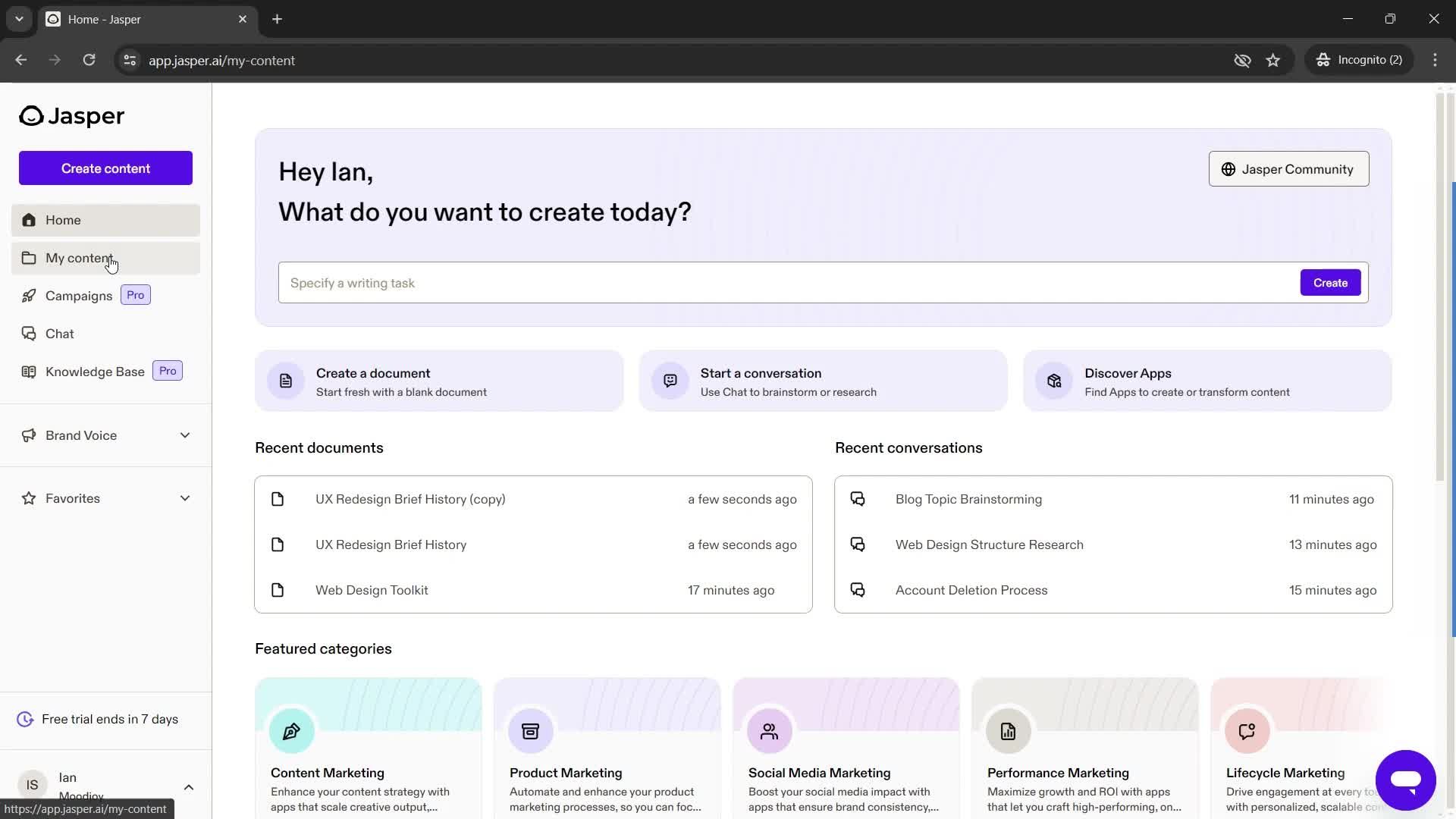Alternatives to CJ Affiliate (Commission Junction)
1. Jasper AI Content Platform
+Pros
- Brand Voice consistency system provides superior brand control
- 99.99% uptime reliability
- SOC2 compliance for regulated industries
- Proven enterprise capabilities with scalable implementations
-Cons
- Pricing volatility with substantial cost increases in 2023
- Content quality variations require human oversight
- Learning curve challenges demand 40-60 hours of prompt engineering training
One highlighted feature and why it's amazing
Provides 50+ specialized templates optimized for marketing applications, with contextual content generation through the proprietary Jasper IQ system.

Another highlighted feature of why it’s amazing
Analyzes existing content to create customizable style guides that maintain consistency across all generated content.
Other Alternatives
Partnerize
Postaga
Surferseo
ThirstyAffiliates
Writesonic AI Writing Assistant
How We Researched This Guide
About This Guide: This comprehensive analysis is based on extensive competitive intelligence and real-world implementation data from leading AI vendors. StayModern updates this guide quarterly to reflect market developments and vendor performance changes.
187+ verified sources per analysis including official documentation, customer reviews, analyst reports, and industry publications.
- • Vendor documentation & whitepapers
- • Customer testimonials & case studies
- • Third-party analyst assessments
- • Industry benchmarking reports
Standardized assessment framework across 8 key dimensions for objective comparison.
- • Technology capabilities & architecture
- • Market position & customer evidence
- • Implementation experience & support
- • Pricing value & competitive position
Research is refreshed every 90 days to capture market changes and new vendor capabilities.
- • New product releases & features
- • Market positioning changes
- • Customer feedback integration
- • Competitive landscape shifts
Every claim is source-linked with direct citations to original materials for verification.
- • Clickable citation links
- • Original source attribution
- • Date stamps for currency
- • Quality score validation
Analysis follows systematic research protocols with consistent evaluation frameworks.
- • Standardized assessment criteria
- • Multi-source verification process
- • Consistent evaluation methodology
- • Quality assurance protocols
Buyer-focused analysis with transparent methodology and factual accuracy commitment.
- • Objective comparative analysis
- • Transparent research methodology
- • Factual accuracy commitment
- • Continuous quality improvement
Quality Commitment: If you find any inaccuracies in our analysis on this page, please contact us at research@staymodern.ai. We're committed to maintaining the highest standards of research integrity and will investigate and correct any issues promptly.